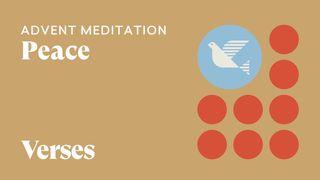Loving Our Global NeighborSample

Diversity & Insightful Investigation Matter
I once tried to convince myself I could connect my television to my internet service provider, to the remote, to the smart home system, to the . . . you get it. I watched YouTube videos, asked friends whom I knew had set up their own systems, and even read instruction booklets that came with the items. I was determined to make everything synch—until I was determined I was not capable of making everything synch. I’ve never had the mind or skill to navigate wires and link multiple electronics, all with a confident and calm demeanor. Finally, I resigned the task and admitted that I was operating outside my strengths. There are people who actually like setting up the television! So I found one of those people and got back to doing the things I do best.
Spiritual matters require a similar acknowledgment, an insightful investigation. In order to plug in to the global poverty crisis and place yourself in the setting where you can do the most good, you need to investigate which gift of yours would be most beneficial. We all have a calling to do something with our lives; it’s wired into our DNA. We were created for connection and to develop our gifts. The pull to involve ourselves with certain causes will differ. I’m assuming you have an interest in helping the poor, and you want to understand more about the crisis our world is in and how you can play a part in providing your unique services. According to Wydick’s research, students are looking to align their lives with a cause, too, so it’s not just adults that feel the calling. Yet, an enthusiastic calling isn’t going to get anything done. The key is determining what role you will have.
It’s easy to overlook the specifics in our calling. You can label it easy ignorance, because many people assume they are always going in the right direction and helping in the way that they “feel” led. But feelings and facts are often in opposition. You might feel it’s best to go on a mission trip and provide a helping hand around an impoverished community. But the fact might be you have a chronic health condition in which you suffer frequent flare-ups, and traveling in harsh conditions would not be in your best interest. Instead, you could do some insightful investigating and determine the pros and cons for your potential efforts. Walking into a crisis with grand assumptions about your skills (and where people’s lives and futures are at stake) instead of a confident belief in your gifts is
Diversity is a biblical concept. Paul offers his diversity argument in 1 Corinthians 12 and teaches us that each person is given specific gifts of healing, helping, teaching, administration, and more that are crucial to the whole. Wydick organizes specific roles people play in relation to international development and poverty work:
Investigators: answer questions related to “what works”
Givers: provide financial support
Advocates: provide a voice, support, and defense
Creators: create poverty interventions, nonprofits, or a social business
Directors: oversee and administrate the good work of organizations
Practitioners: act as the hands of the body touching those in need
Do you see what your role in a cause might be, according to your strengths and not your feelings or wants? It’s possible to operate in multiple roles, but one will typically stand out over the other. Wydick says it best here: “Whether formally or informally, laboring in the diversity of community and in a network of like-minded people is nearly always the best path to meaningful and effective work.”
Questions to ask yourself:
Read the roles we can fulfill in relation to international poverty work (above). Which one are you most equipped to be? Make a list of the attributes that your main role has. If you were to add a secondary role, which one would it be? Make a list of those attributes. Now see if you are living your role or if you are currently wearing one that only feels right but isn’t your true strength.
Are there barriers in your getting involved? Money, time, information, self-confidence? If there are, see which ones need to be addressed. Through our diverse roles, we can help one another move past our barriers. For example, if you see a way to solve a problem but lack the finances, then let your barrier transfer to someone’s natural Giver role! Or, if you have money to offer but lack the voice of an Advocate to pair with the financial backing, call in the advocacy troops.
Prayer:Lord, I accept my gifts and desire to use them for a global impact. I am grateful for the diversity and creativity that is displayed when groups come together. Remove the barriers that keep benevolent projects from coming to fruition. Help me to say on course and have confidence in my role as _________ . Amen.
Scripture
About this Plan

This reading plan includes five daily devotions on Bruce Wydick's book Shrewd Samaritan: Faith, Economics, and the Road to Loving Our Global Neighbor. This study helps you understand your unique role and purpose when it comes to giving back and loving your neighbors well.
More
We would like to thank HarperCollins/Zondervan/Thomas Nelson for providing this plan. For more information, please visit: http://www.shrewdsamaritan.com
Related Plans

5 Ways Sacrifice Integrates Faith and Work

Advent Meditation: Peace

The Return

The Pursuit - 12 Weeks

Imposter Syndrome: You Are Who God Says You Are

And He Shall Be Called: Advent Devotionals, Week 1

Heart Rehab

God Our Refuge

Connect With God Through Remembrance | 7-Day Devotional
